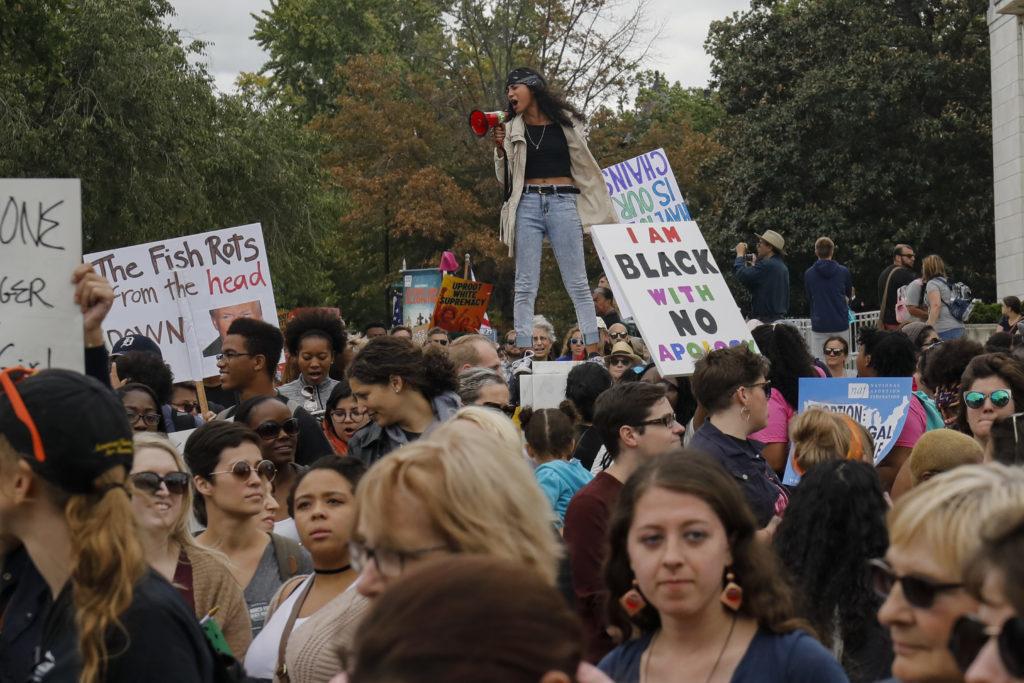Updated: Oct. 1, 2017 at 11:05 a.m.
About fifty students were among the thousands of activists, students and families who participated in a pair of racial justice marches in downtown D.C. Saturday.
Leaders and members of various student organizations, including GW’s chapter of the NAACP, Young Progressives Demanding Action and College Democrats gathered this morning in Kogan Plaza before heading to the March for Black Women, and eventually, the March for Racial Justice.
The March for Black Women began first in Seward Square in Southeast D.C. at 8 a.m., and merged with the March for Racial Justice around 12:30 p.m. Together, the two groups marched past the U.S. Department of Justice and toward the National Mall rallying against the inequalities black women face.
Erica Jung, co-chair of the Civil Rights Committee of Young Progressives Demanding Action, said her organization aimed to show solidarity and support for black women who face “disproportionate” oppression in the U.S.
“We want to send the message that black women most uniquely go through these issues of racial discrimination,” she said.
[gwh_image id=”1039296″ credit=”Lillian Bautista | Hatchet Photographer ” align=”none” size=”embedded-img”]Keiko Tsuboi, the chapter leader of Young Progressives Demanding Action, rallies with thousands of other demonstrators at the March for Racial Justice Saturday [/gwh_image]
Jung added that she wants to see students push to engage in conversations about race that don’t just relate to national, high-profile incidents of racial discord.
“We definitely need to talk more about racial justice because GW is a very racially homogeneous, very white, bougie campus,” Jung said. “There’s really that problem of white liberals on campus and I recognize this in a lot of people.”
Abiolo Agoro, a sophomore and president of GW’s NAACP chapter, said she hopes the marches encourage students to participate in discussions about race that don’t end after protesters go home.
“It’s one thing to come to a protest and raise your fist but what are you doing after that?” Agoro said. “We really need to direct people in a positive direction to see what actual solutions there are.”
John Kim, a member of the coordinating committee for Students for Justice in Palestine, said students need to talk about issues of race beyond social media if they want to effectively enact change.
“I think the GW community says a lot of shit on Facebook like, ‘I support this, I support this,’” Kim said. “You can say everything you want but you have to act upon it. You can believe in whatever you want, but you have to act upon it. If you don’t act upon it, there’s no meaning to it.”
Adria Carter, a junior and political action chair for the NAACP, said she hopes these demonstrations will help people to think about equality in a way that encompasses both gender and race.
“I’m not just here as a black woman who wants justice for myself, I’m here as a lighter skinned ally, who can be there to uplift the voices of my darker sisters,” she said.
Sophia Duchin, Caitlyn Phung and Kat Dorochenko contributed reporting.
This post was updated to reflect the following correction:
The Hatchet incorrectly reported Adria Carter’s year. She is a junior. We regret this error.





